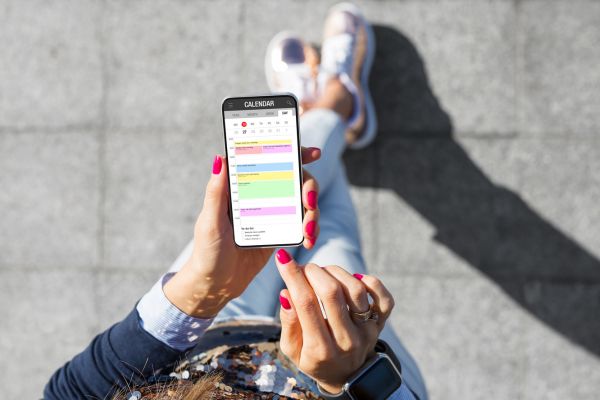In an increasingly digital age, students have a myriad of resources available to help them achieve their academic goals. One such resource is productivity apps. These apps provide tools for organization, focus, task management, and much more. This article will explore 20 of the best productivity apps for students and how they can contribute to a successful academic journey.
Google Drive
Google Drive is a versatile app that offers a variety of tools that can enhance a student’s productivity. It provides cloud storage for files, making them accessible from any device with an internet connection. This eliminates the need for carrying physical storage devices, reducing the risk of data loss.
Besides storage, Google Drive includes apps like Google Docs, Sheets, and Slides, allowing students to create and edit documents, spreadsheets, and presentations. The real-time collaboration feature enables students to work together on projects, fostering team collaboration.
Google Drive also integrates seamlessly with other Google apps, including Google Classroom. This interconnectedness provides a unified platform where students can manage their academic work.
Microsoft OneNote
Microsoft OneNote is a digital notebook that helps students stay organized. It allows users to create different notebooks for various subjects or projects, with sections and pages within each notebook. This structure mimics physical notebooks, making it intuitive to use.
OneNote supports multimedia content, including text, images, audio, and video. Students can insert lecture notes, diagrams, and even record audio notes. These capabilities cater to different learning styles, making OneNote an adaptable study tool.
OneNote also includes features like tags and search functionality, making it easier for students to locate specific notes. This is particularly useful during revision periods when students need to quickly access relevant information.
Todoist
Todoist is a task management app that can help students stay on top of their academic responsibilities. Students can use it to create tasks, set deadlines, and organize tasks into projects. This aids in breaking down large assignments into manageable parts.
Todoist also allows users to prioritize tasks and set reminders, ensuring important deadlines are not overlooked. This can contribute to effective time management, a crucial skill for academic success.
Moreover, Todoist integrates with other apps like Google Calendar and Dropbox, providing a consolidated view of tasks and related resources. This integration reduces the need to switch between apps, enhancing efficiency.
Quizlet
Quizlet is a study app that utilizes active recall and spaced repetition, two scientifically proven study techniques. It allows students to create digital flashcards on various subjects, making it a versatile study tool.
The app includes different study modes like Learn, Write, Test, and Match, catering to different learning preferences. Students can also listen to the material, making it a useful tool for auditory learners.
Furthermore, Quizlet allows students to share flashcard sets, promoting collaborative learning. Students can also access public flashcard sets created by other users, providing a wealth of resources for various subjects.
Forest
Forest is a focus app that uses an innovative method to keep users focused on their tasks. When a user wants to focus, they plant a virtual tree. If they leave the app before the set time, the tree dies. This gamification of focus can motivate students to avoid distractions and concentrate on their studies.
The app also allows users to set goals and track their progress over time. This visibility can provide a sense of achievement and motivation, fostering a consistent study routine.
Additionally, Forest partners with a real-tree-planting organization, Trees for the Future. Users can spend virtual coins they earn in the app to plant real trees, making Forest an app that not only boosts productivity but also contributes to environmental sustainability.
Grammarly
Grammarly is a writing app that can help students improve their writing skills. It offers real-time grammar and spell checking, making it an excellent tool for essay writing and report preparation.
In addition to basic corrections, Grammarly provides suggestions for enhancing clarity, conciseness, tone, and engagement. This can help students develop a more polished and effective writing style.
Grammarly also offers a plagiarism detection feature. This helps ensure academic integrity by alerting students if their writing is too similar to content found online.
Evernote
Evernote is a note-taking app that provides a central location for students to store and organize their study materials. It supports various content types, including text, images, audio, and web clippings.
Evernote’s search functionality makes finding specific notes or documents easy. It can even search handwritten notes and text within images, ensuring no piece of information is lost.
With Evernote, students can also share notes, making it a great tool for group projects or study groups. The app syncs across devices, allowing students to access their notes wherever they are.
RescueTime
RescueTime is a time management app that provides insights into how users spend their time on digital devices. It tracks the time spent on different apps and websites, generating detailed reports.
By understanding where their time is going, students can identify time-wasting activities and make necessary adjustments. This can contribute to more effective study sessions and better work-life balance.
RescueTime also allows users to set goals and alerts to manage their digital habits. This helps ensure students allocate adequate time to their studies and other important activities.
Khan Academy
Khan Academy is a learning app that offers instructional videos, practice exercises, and a personalized learning dashboard. The content covers a wide range of subjects, making it a valuable resource for students.
The app promotes mastery learning, where students progress at their own pace, ensuring a solid understanding of each concept before moving on to the next. This can lead to a deeper comprehension of the material.
Furthermore, Khan Academy is free to use, making quality education accessible to all students. This can be especially beneficial for self-learners or those seeking additional resources for their studies.
Google Calendar
Google Calendar is a powerful scheduling tool that can help students manage their academic and personal schedules. They can use it to keep track of classes, assignment deadlines, study sessions, and extracurricular activities.
The app allows users to create different calendars for various aspects of their life, such as academics, work, and personal commitments. Each calendar can be color-coded for easy identification.
Google Calendar also offers features like reminders and notifications, ensuring important events and deadlines are not forgotten. The app syncs across devices, so students can access their schedule wherever they are.
MindNode
MindNode is a mind mapping app that helps students visualize their thoughts and ideas. This can be particularly useful for brainstorming, outlining essays, or studying complex subjects.
The app allows users to create nodes for different ideas and connect them to show relationships. Users can customize the appearance of their mind maps with different colors and styles.
MindNode also supports multimedia content, so students can insert images or links to relevant resources. The finished mind map can be exported in various formats, including PDF and image files, for easy sharing and printing.
Anki
Anki is a flashcard app that utilizes spaced repetition, a proven learning technique. It allows users to create their own flashcards, catering to the specific needs of each student.
The app schedules reviews based on how well the user remembers a piece of information. This ensures that material is reviewed just before it’s about to be forgotten, optimizing the learning process.
Anki supports multimedia content, so flashcards can include text, images, audio, and even video. This versatility caters to different learning preferences.
Slack
Slack is a communication app that can facilitate collaboration among student groups. It allows users to create channels for different topics, keeping conversations organized.
Users can send direct messages, share files, and even make voice or video calls within the app. This versatility makes Slack a comprehensive communication tool.
Slack also integrates with other apps like Google Drive and Dropbox, allowing users to share and access resources without leaving the app. This enhances efficiency and productivity.
Canva
Canva is a graphic design app that can be useful for students who need to create presentations, posters, or infographics. It offers a wide range of templates, making design accessible even for those without prior experience.
Users can customize their designs with different fonts, colors, images, and elements. Canva also offers a library of stock images and illustrations, providing a wealth of resources for design.
Canva allows users to collaborate on designs, making it a great tool for group projects. The finished designs can be exported in various formats for easy sharing and printing.
My Study Life
My Study Life is an app designed to help students manage their academic life. It includes features for tracking classes, assignments, exams, and study sessions.
The app offers reminders for upcoming deadlines and exams, ensuring important dates are not missed. It also syncs across devices, so students can access their schedule wherever they are.
My Study Life also supports rotation schedules and holidays, catering to the varied schedules of different schools and universities. This makes it a versatile tool for students.
Duolingo
Duolingo is a language learning app that uses gamification to make learning a new language fun. It offers courses in over 30 languages, catering to a wide range of language learners.
Users progress through lessons that teach vocabulary, grammar, and pronunciation. The app adapts to the user’s performance, providing personalized learning.
Duolingo also includes features like streaks and leaderboards, adding an element of competition. This can motivate students to consistently practice their language skills.
Trello
Trello is a project management app that can be useful for students managing group projects or large assignments. It uses a board and card system to organize tasks.
Users can create cards for different tasks and move them between lists as they progress through the project. This provides a visual representation of the project’s progress.
Trello also allows users to assign tasks, add due dates, and attach files. This ensures all project resources are easily accessible and deadlines are clearly communicated.
Pocket is an app that allows users to save articles, videos, and web pages for later viewing. This can be useful for students who come across useful resources but don’t have time to engage with them immediately.
The app allows users to tag their saved items, making it easier to find specific resources later. It also offers a text-to-speech feature, allowing users to listen to their saved articles.
Pocket is available on multiple platforms, and it syncs across devices. This allows students to access their saved resources wherever they are.
Zoom
Zoom is a video conferencing app that has become essential for remote learning. It allows users to host and join meetings, making it a crucial tool for online classes and study groups.
Users can share their screen, use a virtual whiteboard, and even break out into smaller groups. These features make Zoom a versatile tool for collaborative learning.
Zoom also offers recording functionality. This allows students to review their classes or meetings later, reinforcing their learning.
Mendeley
Mendeley is a reference management tool that can be invaluable for students writing research papers. It allows users to import references from various sources and generate citations and bibliographies in multiple styles.
The app also offers a PDF reader with annotation features. This allows students to make notes directly on their research papers.
Mendeley also includes a research network where users can discover new research and connect with other researchers. This can be particularly useful for students pursuing advanced degrees.
In the current digital age, productivity apps offer students an array of resources to enhance their academic journey. These apps provide tools for organization, focus, task management, study, and much more. By leveraging these tools, students can navigate their academic responsibilities more effectively and pave the way for success in their academic journey. With these apps at their fingertips, students are well-equipped to achieve their academic goals.



